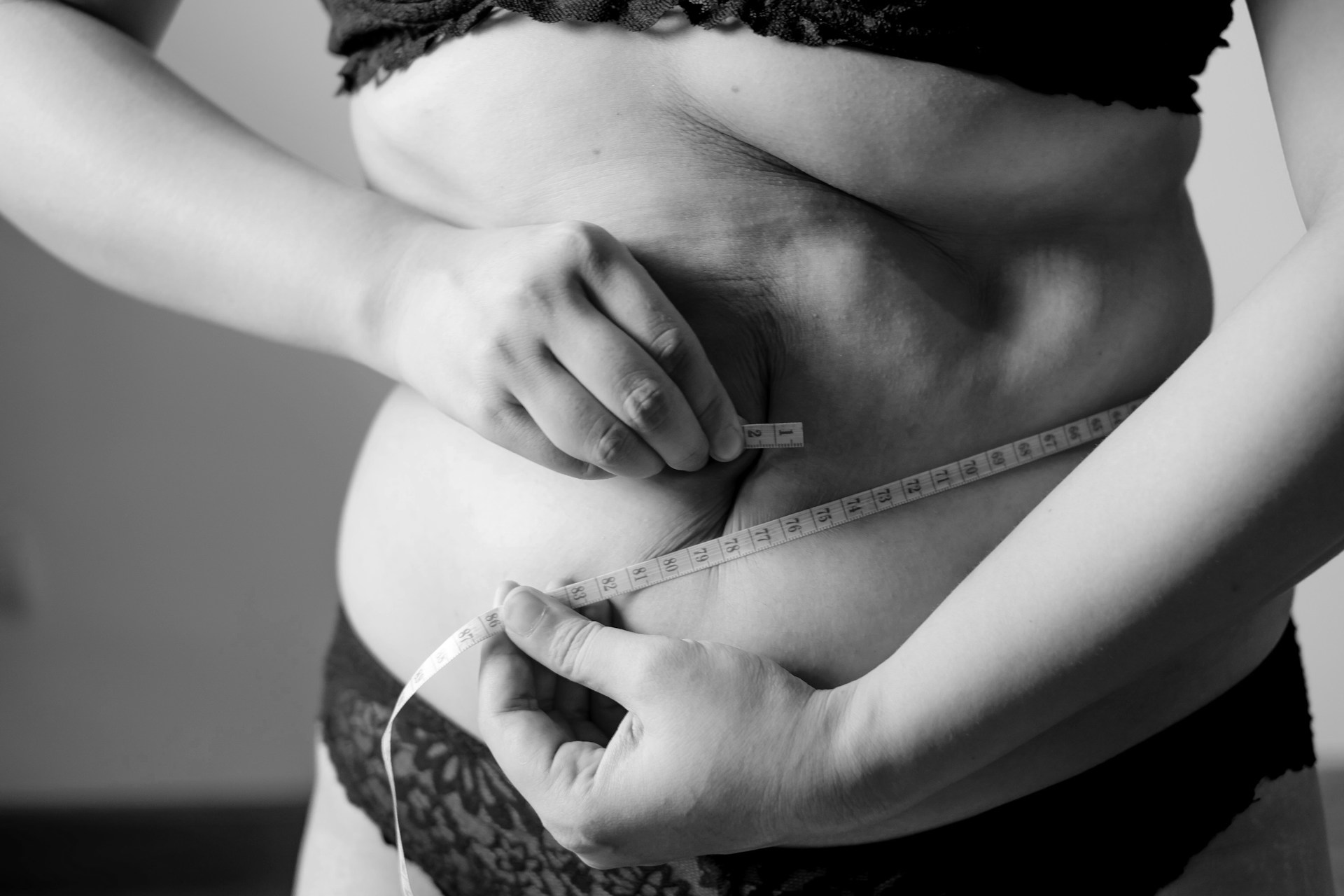Bariatric surgery can improve a patient's health and rid them of serious illnesses increasing their longevity and quality of life. Overall, health-wise the pros outweigh the cons, however, it is important to note that there are some risks and side effects associated with bariatric surgery.
Patients who undergo bariatric surgery often experience changes that they are not expecting. While they understand and look forward to losing weight, the full impact the surgery will have on their lifestyle does not occur to them. Patients must follow diet and modifications to their lifestyle and often their behavior forever and this can cause emotional changes as well as make an impact on their social lives and their relationships.
If you are contemplating bariatric surgery and if it is right for you, it may be helpful to consider today’s blog post as we discuss some expected and unexpected pros and cons of bariatric surgery.
{{cta_button}}
Why It Is Important To Weigh Bariatric Surgery Pros And Cons
Some individuals who consider bariatric surgery feel that it is an easy way out and once they have the surgery everything will be better and easier. Losing weight, whether assisted through surgery, a non-surgical procedure, or a medical weight loss program, is never easy. It might be the hardest thing you have ever done.
Knowing what to expect and understanding the benefits and the drawbacks of whichever route you choose to take on your weight loss journey can be the difference between failure and success.
Much of the success a patient will achieve will be due to their determination and attitude. Studies have shown that patients who have a positive attitude and are committed to making lifelong changes to better their health and well-being achieved their weight loss goals and numerous other benefits.
Finding a board-certified bariatric surgeon that you feel comfortable with is one of the first essential tasks you should complete when considering undergoing bariatric surgery. Partnering with a knowledgeable bariatric surgeon will help you navigate and consider the pros and cons of bariatric surgery to determine which procedure will be right for you.
Bariatric Surgery Pros
Obesity rates are out of control in the United States and have been getting worse year over year. There are many factors contributing to this decline in our Nation’s health but fortunately, due to advancements in medical technology, obese individuals have several surgical and non-surgical choices that can help them lose weight.
1. Losing Weight Can Help You Live Longer
Bariatric surgery can save or extend a patient’s life. Many patients suffer from weight-related diseases and disorders that can be alleviated through bariatric surgery.
The Journal Of The American Medical Association published a study contrasting patients who had weight loss surgery with those that did not, taking into consideration their age, gender, BMI, and obesity-related conditions. The study concluded that those who lost weight after having bariatric surgery had a longer lifespan.
{{cta_button}}
2. Reduces Risks For Heart Disease, Hypertension, and Diabetes
A study presented by The American Society for Metabolic Surgery reported that Individuals who underwent bariatric surgery experienced a 40% reduction in potential risk for coronary artery disease and one year later 40% of the patient group experienced the complete remission of type 2 diabetes, and 44% of these patients no longer exhibited any symptoms of high blood pressure.
Type II Diabetes
The Journal of Clinical Endocrinology & Metabolism (JCEM)published the results of a study that further established a link between obesity and type II diabetes and the effect that losing weight plays on the disease. According to the , over 50% of adults with the disease experienced remission after undergoing gastric bypass surgery and losing weight.
High Blood Pressure
Hypertension is another common comorbidity of obesity and has been the subject of many obesity-related that monitor the effects of bariatric surgery on a patient's blood pressure. Often after losing weight patients need to adjust the strength of their blood pressure medication because as their BMI comes down, so does their blood pressure. One study reported over 30% of the participants had to make medication adjustments and some patients experienced remission.
Sleep Apnea
Obesity and sleep apnea have also been connected in previous studies but a showed that 66% of the patients who lost weight after having gastric bypass surgery showed remission of the condition in a two-year follow-up.
Non-Alcoholic Fatty Liver Disease (NAFLD)
Excess fat can create imbalances in our vital body functions, one of which is insulin resistance. When the pancreas has to work extra hard to manufacture enough insulin to maintain our body's blood sugar levels, it can result in diabetes. A showed that NAFLD is a condition experienced by somewhere between 50% and 75% of all obese individuals and they are 2 ½ times more at risk for heart disease.
Osteoarthritis
Carrying excess weight causes wear-and-tear on our joints and many times it can affect an individual's mobility. Osteoarthritis is the term that is used to describe this condition. A that observed patients who were suffering from obesity-related health conditions and lost weight after bariatric surgery reported that even a small loss of weight (10%) can go a long way in reducing the symptoms related to osteoarthritis.
Fertility
A woman’s fertility can be in many ways. Excess fat that is stored produces estrogen and excess estrogen can disrupt the reproductive cycle. Many women have resumed normal cycles of menstruation and ovulation after undergoing bariatric surgery and losing weight.
Promotes Sustained Weight-loss
The American Society for Metabolic and Bariatric Surgery (ASMBS) reported that individuals who undergo bariatric surgery to lose weight can maintain at least half their weight loss long-term.
Depression and Self Esteem
Most patients develop a more positive body image after losing weight after bariatric surgery. Patients who underwent cosmetic surgery to repair loose skin and other obesity-related damage reported feeling more self-assured and had a more positive outlook. Continuing to follow the lifestyle changes that led to their weight loss after surgery including eating a healthy balanced diet and exercising also promotes feelings of positivity and fulfillment.
Bariatric Surgery Cons
Even with the advancements in bariatric surgery such as laparoscopic procedures, there are still associated risks. Some of the risks that surround bariatric surgery are common and well-known while, others may come as a surprise. Some patients experience some downsides of bariatric surgery that they were not expecting. Having an idea of some of the cons associated with bariatric surgery can help patients to set expectations for their “new normal” after bariatric surgery.
General surgical risks:
- Side effects from general anesthesia;
- Excessive bleeding;
- Infection of incisions or internal infections;
- Risk of DVT (Blood Clots).
{{cta_small}}
Downsides Of Life After Bariatric Surgery
When researching the pros and cons of bariatric surgery, most of the results you will find regarding the cons are surgical complications that may arise during or after the surgery. But have you thought about what your life might look like after your bariatric surgery? There may be some discouraging things that occur that you have not considered, but if you have a plan in place for how to address them if they arise, you are more likely to persevere through to success. Some of the downsides of bariatric surgery to consider include:
Fatigue
Having weight loss surgery and going through the recovery is just the beginning of a life-long journey and will require a significant amount of hard work. The surgery is just a tool to help your hard work pay off and to ensure success, you will be required to make and follow significant lifestyle changes. Making all these changes can be physically and emotionally exhausting for many patients.
Alterations To Your Social Life
Many individuals who undergo bariatric surgery have unhealthy eating habits and must make significant changes to their diet and behavior patterns. To be successful in losing weight it may be necessary to steer clear of social situations that are centered around eating. For instance, you meet a group of friends every Friday night after work for tacos and beer. Your new lifestyle does not support taco and beer night, so can you go and spend time with your friends without making unhealthy choices or would it be easier for you to avoid the situation entirely?
Friends and family who have never experienced weight loss surgery often do not understand what you are going through and do not know how to best support you. This can be a sticky situation because friends may become frustrated with you and it may come down to a choice between you staying on track with your weight loss or socializing with these friends.
Many weight loss patients join support groups to help them get through tough situations like this. These groups are offered both in-person and online and can provide a forum of like-minded people who are experiencing the same issues or have been where you now find yourself.
Psychological Issues Have Remained
Many patients who struggle with obesity have underlying psychological issues that cause them to eat to gain emotional comfort or relieve stress. Undergoing bariatric surgery is not a magic cure and if a patient has unrealistic expectations in thinking otherwise, it may result in disappointment. While losing weight will ultimately give these patients energy to function and can improve their body image and self-esteem, it is not able to address deep-rooted issues that may have contributed to their obesity. Patients are encouraged to work with a professional during their weight loss journey. One who can help support and provide guidance in addressing issues where behavior modification is necessary so they can achieve physical and emotional wellness.
Body Image
After undergoing bariatric surgery many patients are anticipating wearing new cute clothing, social outings where they feel good about themselves Etc. Reality is sometimes the complete opposite and they may feel like they traded one embarrassing issue for another as they worked so hard just to feel worse about the way they look.
Most weight loss patients have carried extra weight for years and the sudden loss of a significant amount leaves behind stretch marks, sagging breasts, and a tremendous amount of loose skin causing anxiety and perhaps more emotional distress than their previous weight.
Knowing these issues may arise can help patients create a long-term plan of care for themselves after their bariatric surgery. Cosmetic procedures can correct, eliminate or reduce the visibility of many issues that arise after a massive weight loss. Most cosmetic surgeons have flexible financing programs to help make these procedures affordable for their patients.
Reduced Tolerance To Alcohol
AUD or alcohol use disorder affects some patients long-term after undergoing bariatric surgery. It is a condition that occurs because of the changes made to the body during certain types of bariatric surgery. The body processes alcohol differently than it had previously and the patient can become drunk much faster than they would have before their surgery. It can also influence and promote addiction to alcohol. In some cases, doctors recommend patients totally abstain from alcohol use.
Hair Loss
Patients often experience hair loss after undergoing any type of major surgery. This occurs for many bariatric surgery patients as well and can come as quite a shock. Hair grows in cycles; it has a growth phase, a resting phase, and a shedding phase. Surgery often interrupts this process and causes the shedding phase to linger. This is usually temporary and will resolve itself but can be concerning.
{{cta_button}}
Pros and Cons Of Bariatric Surgery By Procedure
Vertical Sleeve Gastrectomy (Gastric Sleeve)
Approximately 75% of the patient's stomach is surgically removed which restricts the amount of food the patient can eat.
Pros:
- The procedure is uncomplicated and is a good segue surgery for morbidly obese individuals who might not be able to tolerate another form of bariatric surgery;
- Initial weight loss occurs in the first 3 to 6 months and it is usually significant;
- No alterations are done to the digestive system;
- The results are meant to be permanent provided the patient follows the recommended lifestyle alterations.
Cons:
- This surgery cannot be reversed;
- The stomach can stretch out if patients continually overeat which can cause weight regain;
- General risks associated with surgery.
Gastric Bypass
Approximately 80% of the patient’s stomach is removed and their digestive system is altered to bypass a large portion of the intestine limiting how much the patient can eat and the number of calories the body can absorb.
Pros:
- Results in quick significant weight loss (50% of patient’s total excess weight can be lost in 3-6 months and as much as 75% after 12 months);
- Many weight-related health problems quickly improve or go into remissions such as type-two diabetes and high blood pressure;
- If a patient continues to follow the recommended lifestyle changes, the results can be permanent.
Cons:
- A patient must take supplements for the rest of their life to avoid nutritional deficiencies;
- Risk of experiencing dumping syndrome;
- Elevated risk of blood clots, infection, and gallstones;
- Common risks of surgery.
Adjustable Gastric Band
A lap band is a surgical device that is temporarily placed around the upper portion of the stomach to reduce its size. The patient's intake of food is limited because the usable portion of the stomach is smaller.
Pros:
- The device is temporary and can be removed at any time;
- The device can be adjusted to fit as needed;
- No alterations are made to the digestive system;
- Can provide approximately 30% loss of excess weight in 12 months;
- Quick recovery time.
Cons:
- Slower weight loss and not as effective as other methods;
- Many instances of band slippage requiring an additional surgery;
- Requires ongoing maintenance (adjusting);
- Requires a permanent port in the body for adjusting that can get infected, shift, or malfunction.
Duodenal Switch
This surgery is similar to gastric bypass however, the digestive system is altered in two different places and is often reserved for morbidly obese patients.
Pros:
- The most effective bariatric surgery available and offers the most significant weight loss potential;
- Most patients gain relief from or elimination of obesity-related diseases (type 2 diabetes, high blood pressure, non-alcoholic fatty liver disease, etc);
- Most patients retain their weight loss results.
Cons:
- Patients must take daily supplements for the rest of their lives to avoid malnutrition due to the malabsorptive properties of the surgery;
- Elevated risk of dumping syndrome if eating outside the recommended diet (diarrhea, nausea, rapid heartbeat, fainting, etc);
- Increased risk for gallstones;
- Risks generally associated with surgery.
In almost every case, when weighing the pros and cons of bariatric surgery, the pros will outweigh the cons. Choosing a board-certified bariatric surgeon to evaluate your circumstances will be instrumental in choosing the best procedure to help you lose weight safely and effectively.
Bariatric surgery involves a lifetime commitment and ongoing maintenance. Patients must take supplements to avoid malnutrition and almost everything in their lives requires alterations or changes to ensure the long-term success of their weight loss.
{{cta_button}}
Alternatives To Bariatric Surgery
If you are hesitant to undergo surgery or are uninsured and must pay for your procedure yourself there are less expensive options that do not require surgery that can be just as effective.
1. Suture Sculpt Endoscopic Sleeve Gastroplasty (ESG)
Suture Sculpt is a non-surgical procedure that reduces the size of the patient's stomach without surgically removing any portion of it. The stomach is reshaped into a smaller tube-like pouch and held in place by sutures. The entire procedure is performed endoscopically and requires no incisions. Patients can lose a significant amount of weight.
2. The Orbera Gastric Balloon
A gastric balloon is a temporary device that is strategically placed in a patient's stomach to take up space. This provides an ongoing feeling of fullness as well as limits the amount of food a patient can consume at one time. The balloon remains in the patient's stomach for 6 months during which time they adhere to a special diet and exercise program. after six months, the balloon is removed but the patient continues the program for an additional six months. Many patients have experienced tremendous weight loss results.
Losing weight is no easy task and it requires an unwavering commitment and a high level of dedication. Non-surgical procedures offer patients much shorter recovery times and are also more affordable for self-pay patients. The pros outweigh the cons when it comes to losing a tremendous amount of weight and patients gain increased energy levels, a boost in their self-esteem, elevated quality of life and so much more.
If you are ready to take the first step on your way to a healthier you, contact Batash Endoscopic Weight Loss Center today to learn more about non-surgical weight loss alternatives Get help losing weight but without the hefty expense, risks, or recovery associated with surgery. Set up a consultation today to find out which weight loss option will be best for you!
{{cta_button}}








